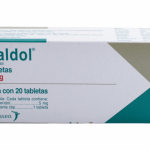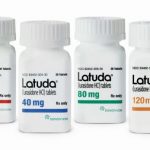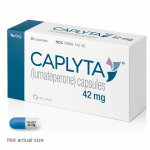Paliperidone (Invega): Uses, Benefits, Dosage, Side Effects
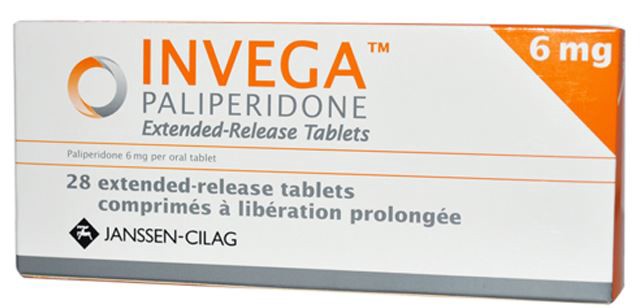
What Is Paliperidone And What Does It Treat?
Paliperidone (Invega) is an antipsychotic medicine used in adults and adolescents from 15 years of age to treat schizophrenia, a mental illness with symptoms such as disorganized thinking and speech, hallucinations (hearing or seeing things that are not there), suspiciousness, and delusions (false beliefs).
Invega is also used to treat adults with schizoaffective disorder. This is a condition in which the patient has episodes of elevated mood (mania) or low mood (depression) in addition to symptoms of schizophrenia.
Invega contains the active substance paliperidone a second-generation antipsychotic (SGA) or atypical antipsychotic. Paliperidone (Invega) rebalances dopamine and serotonin to improve thinking, mood, and behavior.
How does Paliperidone (Invega) work?
The active substance in Invega, paliperidone, is known as an ‘atypical’ antipsychotic because it is different from the older antipsychotic medicines that have been available since the 1950s. Paliperidone is an active breakdown product (metabolite) of risperidone, another atypical antipsychotic medicine that has been used in the treatment of schizophrenia since the 1990s.
In the brain, paliperidone attaches to several different receptors (targets) on nerve cells. This disrupts signals sent between brain cells by ‘neurotransmitters’, substances that nerve cells use to communicate with neighboring cells. Paliperidone acts mainly by blocking the receptors for the neurotransmitters dopamine and 5‑hydroxytryptamine (also called serotonin), which are involved in schizophrenia. By blocking these receptors, paliperidone helps to normalize the activity of the brain and reduce symptoms.
What Is The Most Important Information I Should Know About Paliperidone (Invega)?
Schizophrenia requires long-term treatment. Do not stop taking Paliperidone (Invega), even when you feel better.
With input from you, your health care provider will assess how long you will need to take the medicine.
Missing doses of Paliperidone (Invega) may increase your risk for a relapse in your symptoms.
Do not stop taking Paliperidone (Invega) or change your dose without talking with your healthcare provider first.
For Paliperidone (Invega) to work properly, it should be taken every day as ordered by your healthcare provider.
What Should I Discuss With My Healthcare Provider Before Taking Paliperidone (Invega)?
• Symptoms of your condition that bother you the most
• If you have thoughts of suicide or harming yourself
• Medications you have taken in the past for your condition, whether they were effective or caused any adverse effects
• If you ever had muscle stiffness, shaking, tardive dyskinesia, neuroleptic malignant syndrome, or weight gain caused by a medication
• If you experience side effects from your medications, discuss them with your provider. Some side effects may pass with time, but others may require changes in the medication.
• Any psychiatric or medical problems you have, such as heart rhythm problems, long QT syndrome, heart attacks, diabetes, high cholesterol, or seizures
• If you have a family history of diabetes or heart disease
• All other medications you are currently taking (including over the counter products, herbal and nutritional supplements) and any medication allergies you have
• Other non-medication treatments you are receiving, such as talk therapy or substance abuse treatment. Your provider can explain how these different treatments work with the medication.
• If you are pregnant, plan to become pregnant, or are breast-feeding
• If you smoke, drink alcohol, or use illegal drugs
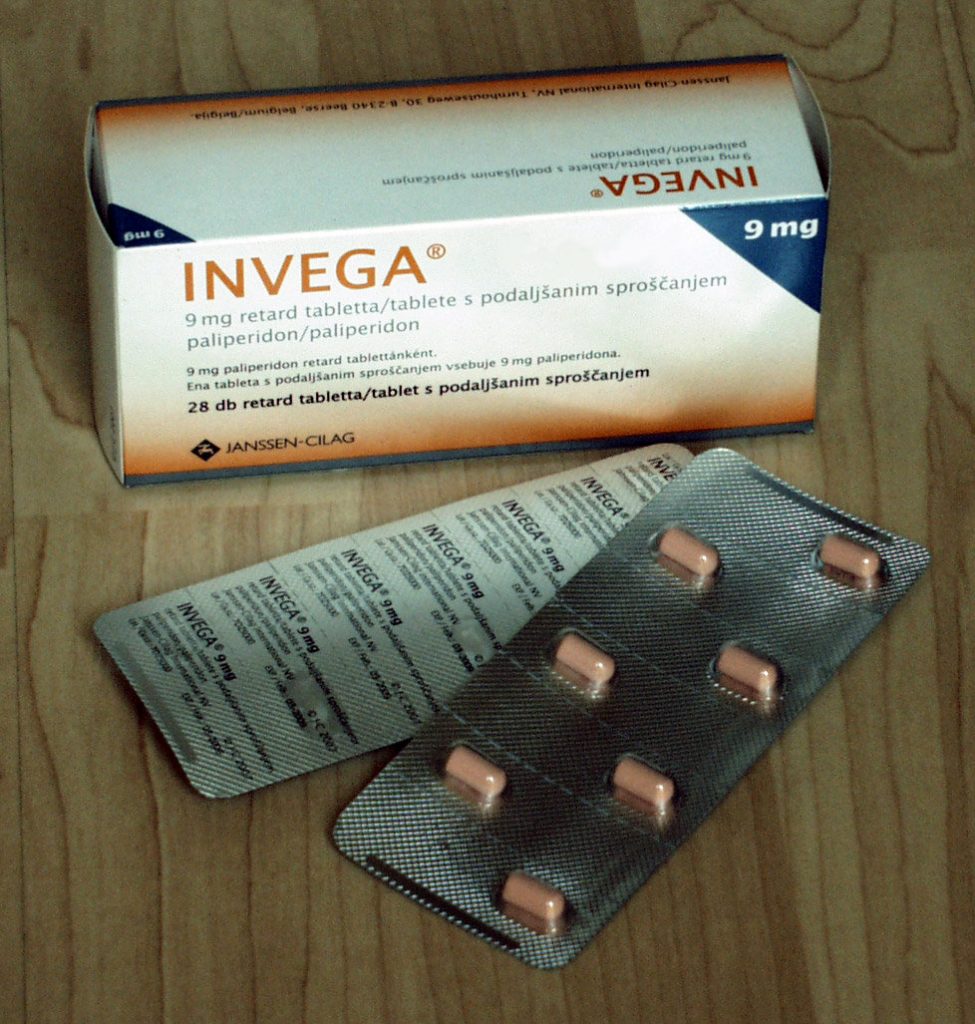
How Should I Take Paliperidone (Invega)?
Paliperidone (Invega) tablets are usually taken 1 time per day with or without food.
Typically, patients begin at a low dose of medicine and the dose is increased slowly over several weeks.
The dose of the tablets usually ranges from 3 mg to 12 mg. The dose of the Sustenna brand of long-acting Paliperidone (Invega) injection formulation usually ranges from 78 mg to 234 mg every month. The dose of the Trinza brand long-acting Paliperidone (Invega) injection formulation ranges from 273mg to 819mg every 3 months. Only your healthcare provider can determine the correct dose for you.
The tablets should be swallowed whole. They should not be chewed, crushed, or broken.
Use a calendar, pillbox, alarm clock, or cell phone alert to help you remember to take your medication. You may also ask a family member or a friend to remind you or check in with you to be sure you are taking your medication.
The Sustenna brand of long-acting injection Paliperidone (Invega) is administered twice in the first 8 days of treatment, then every 4 weeks. Your healthcare provider will administer these injections.
What Happens If I Miss A Dose Of Paliperidone (Invega)?
If you miss a dose of Paliperidone (Invega), take it as soon as you remember, unless it is closer to the time of your next dose. Do not double your next dose or take more than what is prescribed. If you miss an injection, call your doctor or pharmacist right away. Discuss this with your healthcare provider.
What Should I Avoid While Taking Paliperidone (Invega)?
Avoid drinking alcohol or using illegal drugs while you are taking Paliperidone (Invega). They may decrease the benefits (e.g. worsen your confusion) and increase adverse effects (e.g. sedation) of the medication.
What Happens If I Overdose With Paliperidone (Invega)?
If an overdose occurs, call your doctor or 911. You may need urgent medical care. You may also contact the poison control center at 1-800-222-1222. A specific treatment to reverse the effects of Paliperidone (Invega) does not exist.
How does Paliperidone (Invega) make you feel?
When people take Paliperidone (Invega), it can make you people feel dizzy, sleepy, or less alert. Until you know how you are going to respond to Paliperidone (Invega), avoid driving a car, operating machines, or doing things that require you to be alert.
Sit or lie down immediately when you feel dizzy. Lie still with your eyes closed in a darkened room if you’re experiencing a severe episode. Also avoid using caffeine, alcohol, salt, and tobacco. Excessive use of these substances can worsen your signs and symptoms.
How Long Does It Take For Paliperidone (Invega) To Work?
It is very important to tell your doctor how you feel things are going during the first few weeks after you start taking Paliperidone (Invega). It will probably take several weeks to see big enough changes in your symptoms to decide if Paliperidone (Invega) is the right medication for you.
Antipsychotic treatment is generally needed lifelong for persons with schizophrenia. Your doctor can best discuss the duration of treatment you need based on your symptoms and illness.
• Hallucinations, disorganized thinking, and delusions may improve in the first 1-2 weeks
• Sometimes these symptoms do not completely go away
• Motivation and desire to be around other people can take at least 1-2 weeks to improve
• Symptoms continue to get better the longer you take Paliperidone (Invega)
• It may take 2-3 months before you get the full benefit of Paliperidone (Invega)
Can a pregnant woman take Paliperidone (Invega)?
If you are planning on becoming pregnant, notify your healthcare provider to best manage your medications. People living with schizophrenia who wish to become pregnant face important decisions. This is a complex decision since untreated schizophrenia has risks to the fetus, as well as the mother. It is important to discuss the risks and benefits of treatment with your doctor and caregivers.
Antipsychotic use during the third trimester of pregnancy has a risk for abnormal muscle movements (extrapyramidal symptoms [EPS]) and/or withdrawal symptoms in newborns following delivery. Symptoms in the newborn may include agitation, feeding disorder, hypertonia, hypotonia, respiratory distress, somnolence, and tremor; these effects may be self-limiting or require hospitalization.
Can a breastfeeding woman take Paliperidone (Invega)?
Caution is advised with breastfeeding since Paliperidone (Invega) does pass into breast milk. New research indicates that the concentrations of paliperidone in breastmilk are low, and amounts ingested by the infant are small. A safety scoring system finds paliperidone possible to use cautiously during breastfeeding, although others do not recommend it
What benefits of Paliperidone (Invega) have been shown in studies?
Schizophrenia
Three short-term studies involving 1,692 adults showed that Paliperidone (Invega) is more effective than placebo (a dummy treatment) and as effective as another antipsychotic medicine olanzapine at reducing symptoms of schizophrenia (as measured by a standard rating scale). In one of these studies, average symptom scores fell by between 17.9 and 23.3 points after 6 weeks in those taking Paliperidone (Invega) compared with a fall of 4.1 points with placebo. Symptom scores fell by 19.9 points in those taking olanzapine. Similar results were seen in the other two short-term studies, with higher doses of Paliperidone (Invega) being more effective than lower doses.
In an additional longer-term study involving 207 adults with schizophrenia who had initially been treated over 14 weeks, Paliperidone (Invega) was more effective than placebo in preventing new symptoms for up to 35 weeks.
Studies in adolescents have shown similar results with Paliperidone (Invega) to those seen in adults.
Schizoaffective disorder
Studies have shown that Paliperidone (Invega) can reduce symptoms scores and prevent symptoms in patients with schizoaffective disorder.
In one study, patients who were given Paliperidone (Invega) had a fall in their symptom score for mania of between 27.4 and 30.6 after 6 weeks compared with 21.7 in patients who were given a placebo. In another study, the fall in symptom score for mania after 6 weeks was 20.0 in the Invega group and 10.8 in the placebo group. The two studies together involved a total of 614 patients.
In a third study of 334 previously treated patients, symptoms of depression came back in 15% (25 out of 164) of patients given paliperidone compared with 34% (57 out of 170) of patients given a placebo.
What Are The Possible Side Effects Of Paliperidone (Invega)?
Paliperidone (Invega) may cause side effects. Tell your doctor if any of these symptoms are severe or do not go away:
• dizziness, feeling unsteady, or having trouble keeping your balance
• dry mouth
• extreme tiredness
• headache
• increased saliva
• stomach pain
• weakness
• weight gain
Some side effects can be serious. If you experience any of these symptoms, call your doctor immediately:
• confusion
• falling
• fast, pounding, or irregular heartbeat
• fever
• muscle pain or stiffness
• painful erection of the penis that lasts for hours
• restlessness
• slow or stiff movements
• sweating
• unusual movements of your face or body that you cannot control
Paliperidone may cause other side effects. Call your doctor if you have any unusual problems while taking this medication.
Is Paliperidone (Invega) a safe medication?
This medication is safe and effective when used as prescribed. However, Paliperidone (Invega) may increase the blood levels of a hormone called prolactin. Side effects of increased prolactin levels include females losing their period, production of breast milk, and males losing their sex drive or possibly experiencing erectile problems. Long-term (months or years) of elevated prolactin can lead to osteoporosis or increased risk of bone fractures.
Some people may develop muscle-related side effects while taking Paliperidone (Invega). The technical terms for these are “extrapyramidal symptoms” (EPS) and “tardive dyskinesia” (TD). Symptoms of EPS include restlessness, tremor, and stiffness. TD symptoms include slow or jerky movements that one cannot control, often starting in the mouth with tongue rolling or chewing movements.
Temperature regulation: Impaired core body temperature regulation may occur; caution with strenuous exercise, heat exposure, and dehydration.
Second-generation antipsychotics (SGAs) increase the risk of weight gain, high blood sugar, and high cholesterol. This is also known as metabolic syndrome. Your healthcare provider may ask you for a blood sample to check your cholesterol, blood sugar, and hemoglobin A1c (a measure of blood sugar over time) while you take this medication.
SGAs have been linked with a higher risk of death, strokes, and transient ischemic attacks (TIAs) in elderly people with behavior problems due to dementia.
All antipsychotics have been associated with the risk of sudden cardiac death due to an arrhythmia (irregular heartbeat). To minimize this risk, antipsychotic medications should be used in the smallest effective dose when the benefits outweigh the risks. Your doctor may order an EKG to monitor for an irregular heartbeat.
Neuroleptic malignant syndrome is a rare, life-threatening adverse effect of antipsychotics that occurs in <1% of patients. Symptoms include confusion, fever, extreme muscle stiffness, and sweating. If any of these symptoms occur, contact your healthcare provider immediately.
All antipsychotics can cause sedation, dizziness, or orthostatic hypotension (a drop in blood pressure when standing up from sitting or lying down). These side effects may lead to falls which could cause bone fractures or other injuries. This risk is higher for people with conditions or other medications that could worsen these effects. If falls or any of these symptoms occur, contact your healthcare provider.
Are There Any Risks For Taking Paliperidone (Invega) For Long Periods Of Time?
Tardive dyskinesia (TD) is a side effect that develops with prolonged use of antipsychotics. Medications such as Paliperidone (Invega) have been shown to have a lower risk of TD compared to older antipsychotics, such as Haldol® (haloperidol). If you develop symptoms of TD, such as grimacing, sucking, smacking of lips, or other movements that you cannot control, contact your healthcare provider immediately. All patients taking either first or second-generation antipsychotics should have an Abnormal Involuntary Movement Scale (AIMS) completed regularly by their healthcare provider to monitor for TD.
Second-generation antipsychotics (SGAs) increase the risk of diabetes, weight gain, high cholesterol, and high triglycerides. (See “Serious Side Effects” section for monitoring recommendations).
What Other Medications May Interact With Paliperidone (Invega)?
Paliperidone (Invega) may block the effects of agents used to treat Parkinson’s disease such as levodopa (Sinemet®), bromocriptine, pramipexole (Mirapex®), ropinirole (Requip®), and others.
Paliperidone (Invega) may lower your blood pressure. Medications used to lower blood pressure may increase this effect and increase your risk of falling. Propranolol (Inderal®) is an example of this type of medication.
The following medications may increase the risk of heart problems when used with Paliperidone (Invega).
• Antipsychotics including chlorpromazine (Thorazine®), thioridazine (Mellaril®), iloperidone (Fanapt®), asenapine (Saphris®), quetiapine (Seroquel®), and ziprasidone (Geodon®).
• Antiarrhythmics (heart rhythm medications), including procainamide, quinidine, amiodarone (Cordarone®), dronedarone (Multaq®), and sotalol (Betapace®).
The following medications may increase the levels and effects of Paliperidone (Invega): divalproex sodium (Depakote®).
The following medications may decrease the levels and effects of Paliperidone (Invega): carbamazepine (Tegretol®, Equatro®), rifampin, St. John’s Wort.


